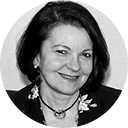| La Main de Thôt, n° 8, 2020 : « La traduction littéraire & SHS à la rencontre des nouvelles technologies de la traduction : enjeux, méthodes et perspectives » |

|
|||||
|
||||||
Alors que les technologies de la traduction sont déjà bien intégrées dans le quotidien du traducteur (Pym 2011), et que la traduction automatique (en particulier neuronale) est à l’origine de changements de grande ampleur dans le métier (Champsaur 2013, Rossi & Chevrot 2019), le numéro 8 de La Main de Thôt a pour objectif de refléter les questionnements, les pratiques et les enjeux nés du croisement entre les nouvelles technologies de la traduction (outils de Traduction Assistée par Ordinateur, corpus électroniques et Traduction Automatique) et les domaines spécifiques de la traduction littéraire et de la traduction Sciences Humaines et Sociales, qui sont traditionnellement associés au biotraducteur.
Très récemment, de nombreuses manifestations se sont intéressées aux nouvelles technologies et à leur impact sur nos pratiques traductives et pédagogiques, ainsi qu’à leur influence sur la théorisation de la traduction. Pour n’en citer que quelques-unes : un des ateliers du Sommet de l’Association européenne pour la traduction automatique (EAMT) qui en août 2019 à Dublin était dédié aux qualités de la traduction littéraire automatique ; l’un des axes du congrès de la société européenne de traductologie (EST) de septembre 2019 (qui avait pour titre « Living translation - people, processus, products ») et concernait les technologies de la traduction pour la traduction de textes créatifs ; deux Workshops organisés à l’Université de Swansea en janvier et mai 2019 sur la « Traduction Littéraire Assistée par Ordinateur », qui déboucheront en avril prochain sur le premier colloque CALT (Computer-Assisted Literary Translation). Les étudiants sont également conviés à participer à cette dynamique, comme le prouve l’organisation au Canada de la Glendon Graduate Student Conference in Translation Studies le 14 mars 2020 à York University (Toronto) intitulée « Facing the future - Transation and Technology ». Des travaux récents, à l’instar de l’article de J. Moorkens et al. « Translators’ Perceptions of Literary Post-editing using Statistical and Neural Machine Translation » publié en 2018 dans Translation Spaces, articulent ainsi TA et traduction littéraire, tandis que la traduction SHS est également l’objet de réflexions comme en témoigne la parution du n° 33 de la revue Palimpsestes entièrement dédié à cette question, ou les manifestations portées par Bruno Poncharal dans l’équipe TRACT (Centre de recherche en traduction et communication transculturelle) de Paris 3 – Sorbonne Nouvelle.
Ce numéro s’inscrit dans cette réflexion actuelle et collective et prend place dans les recherches menées par Carole Fillière et Amélie Josselin-Leray dans le cadre des activités du Centre de Traduction, Interprétation et Médiation linguistique de l’université Jean Jaurès et des laboratoires CLLE et LLA-CREATIS. Il est l’extension d’une journée d’études intégrée au programme des Ateliers Traduire l’Europe de la DGT de la Commission Européenne, qui a eu lieu à Toulouse le 07 février 2020.
Cet appel à contribution entend créer une réflexion sur plusieurs fronts : didactique, traductive, traductologique, technologique, philosophique. Il s’adresse ainsi en particulier aux traducteurs professionnels et enseignants-chercheurs des Masters de traduction professionnelle s’intéressant aux technologies de la traduction (TA, TAO, corpus) ou à la traduction littéraire ou SHS, afin d’associer leurs perspectives dans le numéro 2020 de notre revue. Espace d’échange des idées et des méthodes, La Main de Thôt entend proposer des pistes pour la « réconciliation » ou simplement la « conciliation » entre les technologies de la traduction et ces domaines habituellement considérés comme « trop » créatifs pour la machine : la littérature et les SHS.
Les étudiants pourront également participer à ce numéro, encadrés par leur(s) enseignant(s) et proposer une contribution pour la rubrique « La parole aux étudiants ». Quant aux traducteurs professionnels et/ou universitaires pratiquant la traduction, la rubrique « Propos de traducteurs » a vocation à accueillir leurs écrits, plus en prise sur des considérations pratiques ou des réflexions personnelles. Seront particulièrement étudiées les propositions concernant des recensions d’ouvrages ou des comptes rendus et synthèses de manifestations scientifiques portant sur la thématique du dossier.
Les axes de ce numéro seront les suivants :
· Projets de traduction littéraire et/ou SHS impliquant des technologies de la traduction et une vaste gamme de textes (limites, avantages, posture traductive);
· Atouts et faiblesse des moteurs de traduction automatique dans le cadre de la traduction littéraire et/ou SHS (études de cas, expériences) ;
· Développement de l’expertise universitaire technologique et méthodologique pour la formation des étudiants à la traduction littéraire et SHS par les outils de TAO, les corpus, la TA ; l’évolution de l’IA ;
· Outils technologiques et analyse des traductions et/ou retraductions :
· Théories de la traduction et du texte en lien avec l’intégration des nouvelles technologies de la traduction.
Les contributions sont à envoyer à Amélie Josselin-Leray () et Carole Fillière () pour le 8 juin 2020.
Pour plus de précisions sur les consignes de rédaction et la politique éditoriale de la revue, consulter les onglets correspondants sur le blog du site : http://blogs.univ-tlse2.fr/la-main-de-thot/consignes-aux-auteurs/
Bibliographie indicative :
CHAMPSAUR, Caroline (2013) : « La traduction automatique : un outil pour les traducteurs ? », JosTrans, n°19.
ROSSI, Caroline & Jean-Pierre CHEVROT (2019) : « Uses and perceptions of Machine Translation at the European Commission », JosTrans, n°31.
MOORKENS Joss, Antonio MORAL, Sheila CASTILHO & Andy WAY (2018). “Translators’ Perceptions of Literary Post-editing using Statistical and Neural Machine Translation”, Translation Spaces, vol. 7, n°2, pp. 240-262.
NAUGRETTE-FOURNIER, Marion & Bruno PONCHARAL (2019) ; « La réception de la « pensée française » contemporaine dans le monde anglophone au prisme de la traduction », Palimpsestes, n°33.
PYM, Anthony (2011). « What technology does to translating ». The International Journal for Translation & Interpreting Research, 3(1), 1-9. http://trans-int.org/index.php/transint/article/view/121/81
Proceedings of “the Qualities of Literary Machine Translation Translation” workshop (EAMT summit, août 2019) : https://fc233576-d4db-4de9-b637-e339437e9442.filesusr.com/ugd/705d57_58547f51c8f946118d922c4035f843e1.pdf
Call for Papers La Main de Thôt # 8, 2020 :
“When Literary Translation and Human and Social Science Translation meet Translation Technologies: Issues, Methods and Perspectives”
It is widely acknowledged that translation technologies now dominate the life of translators (Pym 2011) and that Machine Translation (in particular Neural Machine Translation, NMT) has induced major changes in the translator’s profession (Champsaur 2013, Rossi & Chevrot 2019). With this in mind, the editors of issue #8 of La Main de Thôt are calling for papers reflecting upon the issues in, methods of and perspectives on using the latest translation technologies (CAT tools, electronic corpora and Machine Translation) for two particular types of translation which are traditionally associated with the biotranslator: literary translation and human and social science Translation.
Over the last couple of months, a great number of scientific events have dealt with the impact of new technologies on the act of translating, on the teaching of translation and on translation theory. To quote but a few: one of the workshops of the European Association for Machine Translation Summit which took place in Dublin in August 2019 was dedicated to the “Qualities of Literary Machine Translation”; one of the panels of the European Society for Translation Studies Congress which took place in September 2019 entitled “Living translation - people, processus, products” focused on translation technologies for the translation of creative texts; two workshops were organized at the University of Swansea in January and May 2019 on “Computer-Assisted Literary Translation”, leading to the first CALT (Computer-Assisted Literary Translation) conference due to take place in April 2020. Students are also involved in this dynamic process, as shown by the organizing of the Glendon Graduate Student Conference in Translation Studies at York University (Toronto, Canada) in March 2020 entitled “Facing the future - Translation and Technology”. Some recent papers, such as the one by J. Moorkens and al. entitled “Translators’ Perceptions of Literary Post-editing using Statistical and Neural Machine Translation” published in 2018 in Translation Spaces clearly associate machine translation and literary translation, while the translation of human and social science has been the focus of recent studies (see for instance the latest issue of Palimpsestes, #33, which is exclusively devoted to that topic, including also the translation of philosophy) or of recent events such as the ones organized by Bruno Poncharal within the TRACT research team at University Paris 3 Sorbonne Nouvelle.
Issue #8 of La Main de Thôt, to be published at the end of 2020, is part of this collective trend and is in keeping with the research led by Carole Fillière and Amélie Josselin-Leray within the Translation Department (Centre de Traduction, Interprétation et Médiation linguistique, CeTIM) and the research teams CLLE and LLA-CREATIS at University Toulouse Jean Jaurès. It follows up some of the questions raised by a one-day conference they organised at Jean Jaurès University on 7th February 2020 which was part of the ‘Translating Europe’ program of workshops and was jointly sponsored by the European Commission, the CETIM and the French Association for Professional Translation Courses in Higher Education (AFFUMT).
The editors of this issue welcome papers focusing on the following levels of analysis: the teaching of translation, the practice of translation, translation studies, technological developments and philosophical issues. Professional translators and academics teaching in Master’s in Translation programmes and specializing either in translation technologies (MT, CAT tools and corpora) or in literary or human and social science translation are particularly encouraged to send their contributions, so that their perspectives can be compared. La Main de Thôt, as a space for exchanging ideas and methods, intends to suggest ways of “reconciling” or simply “conciliating” translation technologies and fields that are usually considered as being “too” creative for the machine, i.e. literature, and human and social sciences.
It is also possible for students (if supervised by their professors) to contribute to this issue by writing a paper for the section called « La parole aux étudiants ». As for practicing translators (be they independent or academic), they are invited to contribute to the « Propos de traducteurs » section of the journal. Book reviews or critical syntheses of scientific events related to the issue’s main topic are particularly welcome.
Topics of interest include:
· Literary translation or human and social science translation projects involving translation technologies and a wide range of texts (advantages and drawbacks, translation approach used)
· Advantages and limitations of machine translation use for literary translation or human and social science translation (case studies, experiments)
· Development of technological and methodological academic expertise to train students to literary translation or human and social science translation using CAT tools, corpora and Machine Translation; evolution of Artificial Intelligence
· Technological tools and analyses of translations and/or retranslations
· Translation theory and text theory with regard to the use of new translation technologies
For more details on the journal’s policy and guidelines, please check the website: http://blogs.univ-tlse2.fr/la-main-de-thot/consignes-aux-auteurs/.
References
CHAMPSAUR, Caroline (2013) : « La traduction automatique : un outil pour les traducteurs ? », JosTrans, n°19.
ROSSI, Caroline & Jean-Pierre CHEVROT (2019) : « Uses and perceptions of Machine Translation at the European Commission », JosTrans, n°31.
MOORKENS Joss, Antonio MORAL, Sheila CASTILHO & Andy WAY (2018). “Translators’ Perceptions of Literary Post-editing using Statistical and Neural Machine Translation”, Translation Spaces, vol. 7, n°2, pp. 240-262.
NAUGRETTE-FOURNIER, Marion & Bruno PONCHARAL (2019) ; « La réception de la « pensée française » contemporaine dans le monde anglophone au prisme de la traduction », Palimpsestes, n°33.
PYM, Anthony (2011). « What technology does to translating ». The International Journal for Translation & Interpreting Research, 3(1), 1-9. http://trans-int.org/index.php/transint/article/view/121/81
Proceedings of “the Qualities of Literary Machine Translation Translation” workshop (EAMT summit, août 2019) : https://fc233576-d4db-4de9-b637-e339437e9442.filesusr.com/ugd/705d57_58547f51c8f946118d922c4035f843e1.pdf
Calendrier :
Envoi des contributions complètes : 8 juin 2020
Avis d’acceptation des contributions après évaluation en double aveugle : 4 septembre 2020
Publication du numéro : fin 2020
Important dates
Deadline for submission of full-text papers: June 8 2020
Notification of acceptation after double-blind peer reviewing: September 4 2020
Issue #8 published online : late 2020
|
||||||
| Lieu UT2J | ||||||
| Contact | ||||||
















